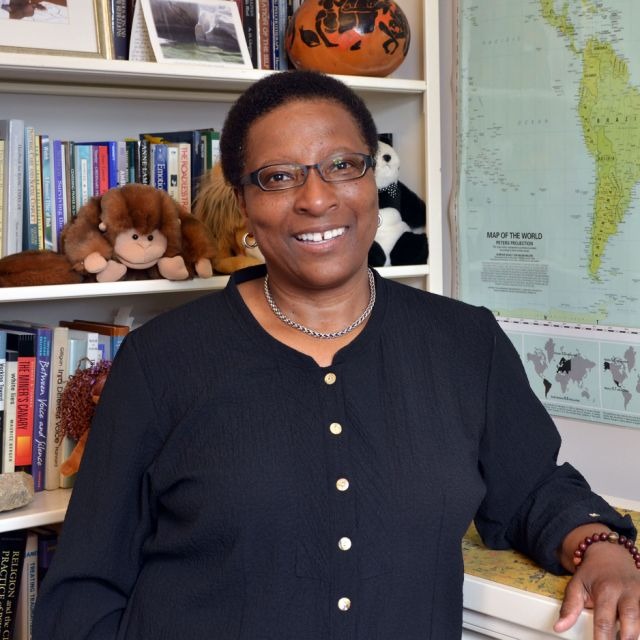
Black Buddhists to Explore Healing and Liberation in New Anthology
Black Americans bring a unique outlook to Buddhism, said Pamela Ayo Yetunde.
“African Americans bring to Buddhism in the U.S. the life experience of constant existential threat of white supremacy,” said Yetunde, co-editor of the anthology, “Black & Buddhist: What Buddhism Can Teach Us About Race, Resilience, Transformation & Freedom,” (Shambhala Publications), released this month.
Most of the anthology was written months before George Floyd was killed, but its opening section is written in his honor. The editors write, “By watching Black and brown bodies die by police violence without resistance, we slowly die too.”
“In honor of George Floyd and countless others, we vow to breathe,” they added on behalf of the eight teachers in this book, who share their own internal journeys as a way of experiencing liberation, defined by Buddhist principles, as Black people in America.
The idea for the book was birthed in 2018 at a meeting of Black Buddhist teachers called “The Gathering,” attended at Union Theological Seminary in New York City. One of the jewels of the anthology is that the Black writers arrive at Buddhism from vastly different backgrounds. They include children of immigrants, people raised in various religious denominations, and various traditions of Buddhism. The richness of their diversity and experiences serves as an on-ramp to readers considering a Buddhist practice, who may recognize themselves in some of these stories.
Yetunde said the book is for “African Americans curious about Buddhism,” white Buddhists who want to know “how the teachings land on African Americans” and religion scholars who can use the book “as a great help to their understanding of religion as a whole.”
In Buddhism it is important to “practice,” to commit to a way of life that includes non-judgmental self-awareness through mindfulness, cultivating compassion, meditation or chanting to experience transcendence and unity.
One co-editor, Cheryl A. Giles, said racism is “a huge elephant” that must be dealt with, one small step at a time.

“When I find myself getting really worked up, I take a couple of breaths and become less reactive,” Giles said. “That is the practice of freedom.”
As a clinical psychologist, she helped many Black youths and families with their traumas but writes that she found herself coming “unhinged” until she found a therapist “who saw me as I was: queer, Black, Buddhist and searching for relief from suffering.”
Part of her personal story includes “generational” suffering, how her mother was affected by becoming pregnant after being sexually abused by a relative at 13.
“Trauma cannot be buried, ignored, pushed aside, or denied,” Giles writes. “By learning to sit with discomfort, you develop an ability to be with whatever feelings, sensations, and thoughts arise within the body with presence and the courage to be with yourself just as you are in each moment.”
It was this process of healing that attracted teacher and writer Ruth King to Buddhism.
“I wasn’t really searching for something but found myself very compelled by the idea I could be in a practice that was inviting you to know the experience of freedom on your own by turning inward and giving yourself what you need — and your freedom is not reliant on something outside of you,” said King, who noted that she grew up in a Los Angeles family and community where it was dangerous to show vulnerability.

